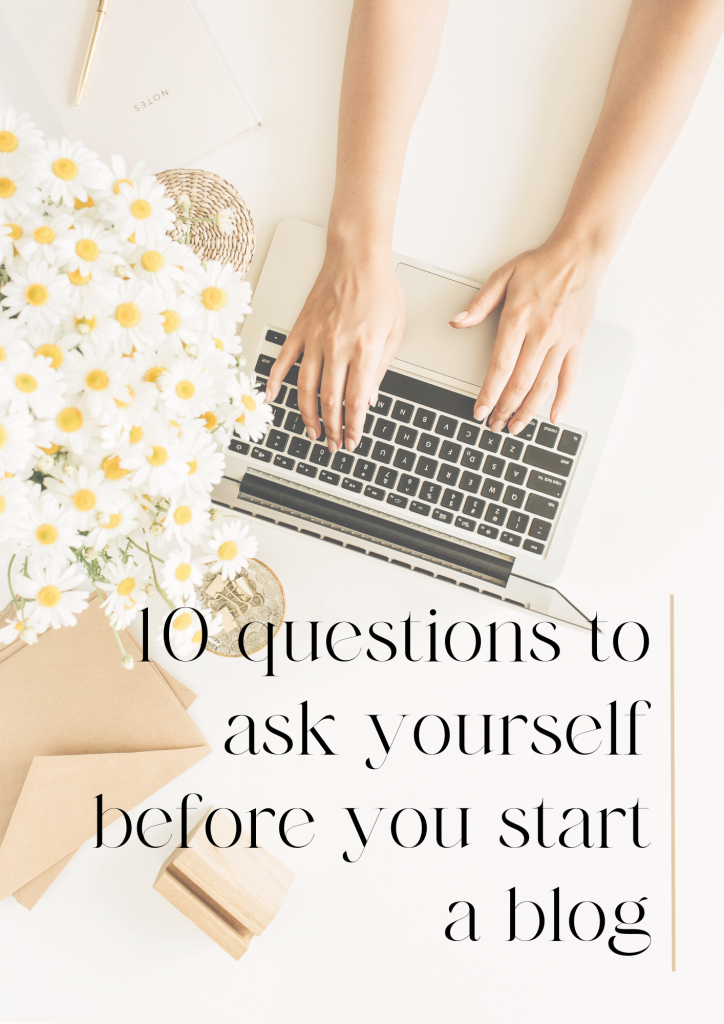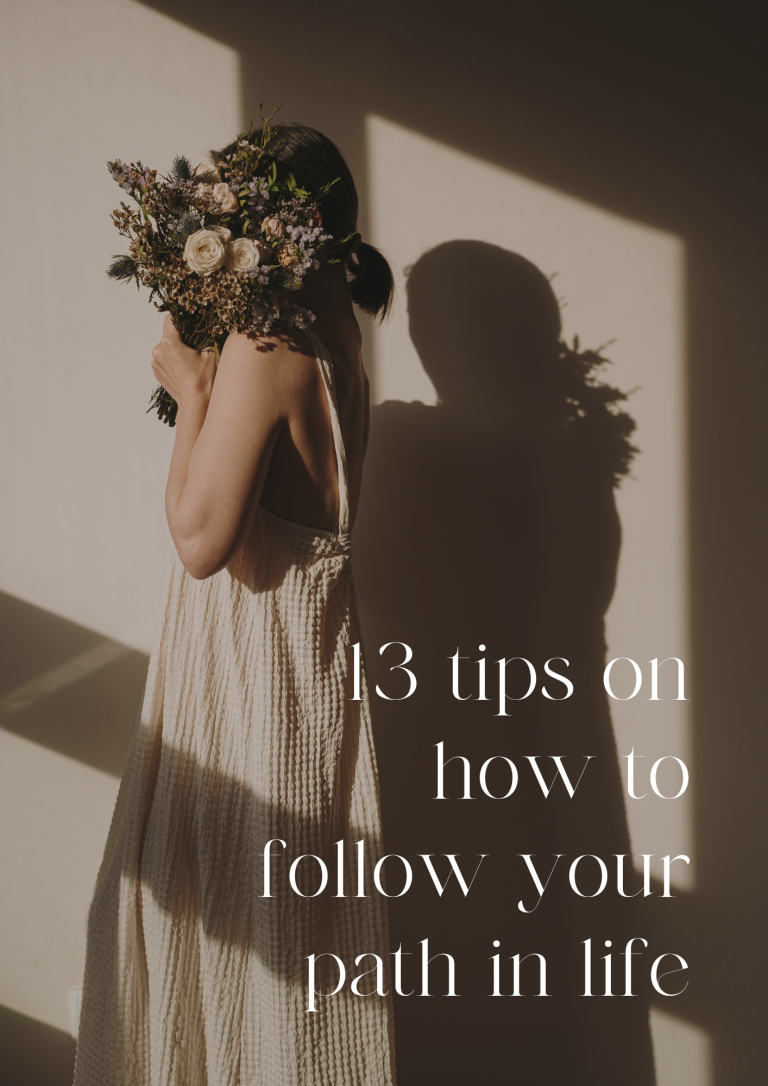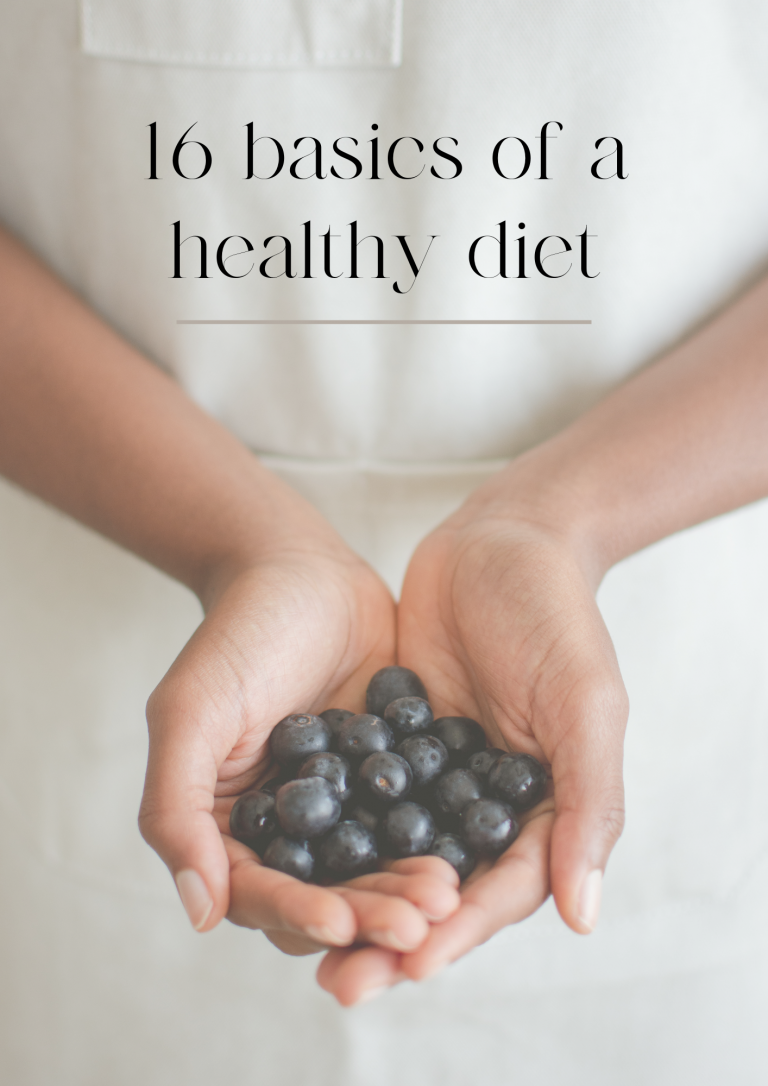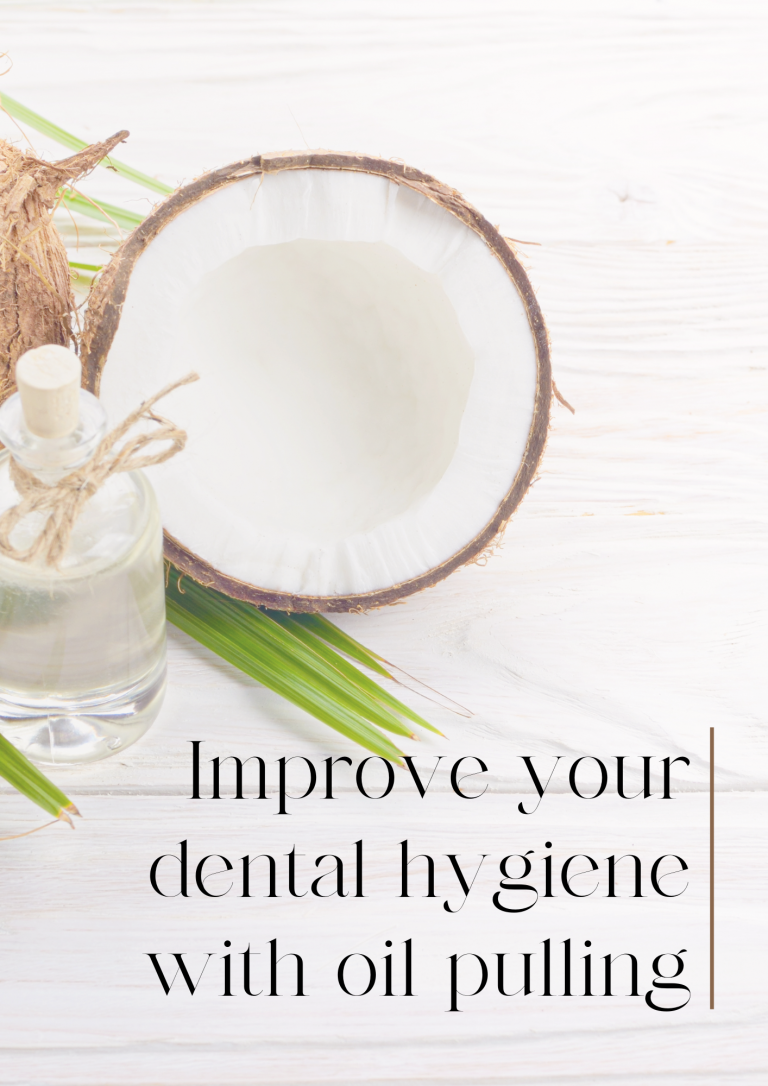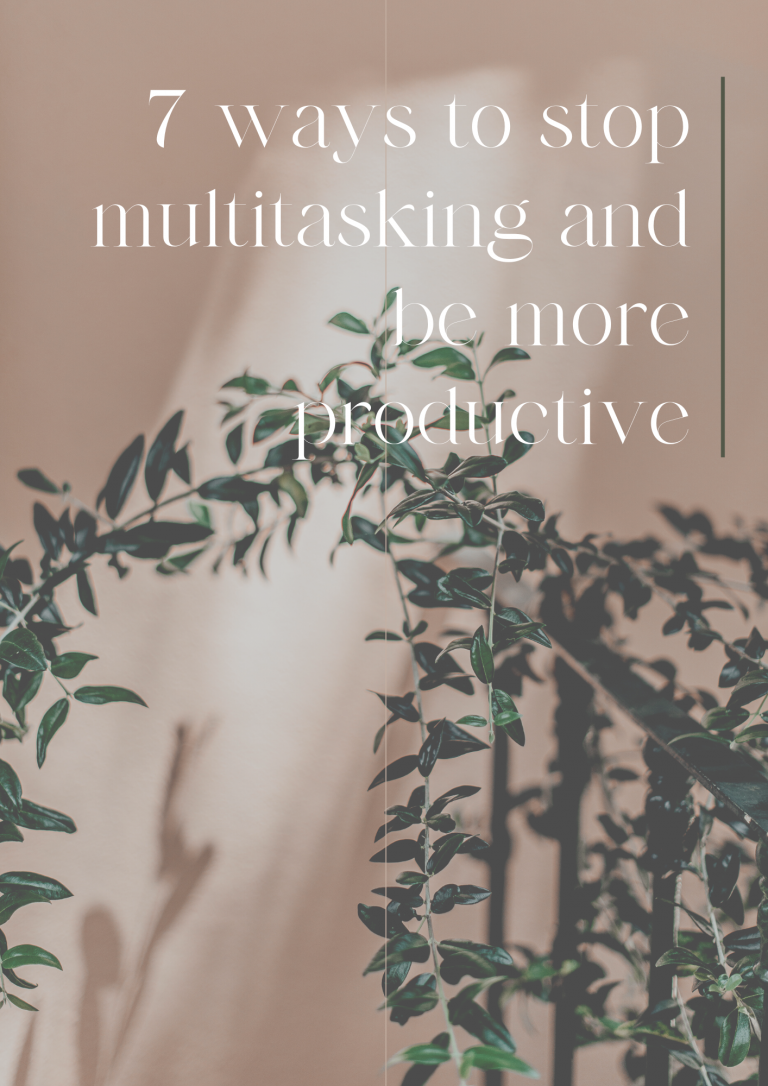10 Easy tips for creating a healthier diet
Creating a healthier diet is one step further to creating a life you adore and building a solid and healthy relationship with yourself and your body.
When discussing a healthy lifestyle, one topic always included is nutrition. Your body interacts with its environment continuously, especially with the food we consume. To function correctly and to our pleasure, taking care of what and how we eat is a significant part of creating a healthier lifestyle and ultimately feeling better and more content – this is the point where a guide on creating a more nutritious and healthier diet can be very beneficial.
Even though we can all agree that nutrition is essential and exciting (for most people), it may be challenging to implement healthier eating habits.
It can be challenging to implement healthier eating patterns.
The problem starts the moment you begin your research on the internet. Millions of articles are out there, telling you exactly what to do and what to avoid. And in the end, nothing we can do to improve our health could be good enough. It seems living itself is dangerous when it comes to perfect health.
The result of all these tips and tricks found on the internet and other resources is eventually confusion and frustration. Nothing seems helpful, and no matter how much you want to better yourself, you cannot comply with the world of healthy eating that seeks perfection!
What should you believe? What is the only diet that drastically improves your health and meets your expectations? Does a nutrition hack exist that is eventually realisable without confronting yourself with one issue or another?
No worries! I´ve got your back – for all your questions, realistic answers exist. I know how frustrating everything regarding nutrition can be.
Nutrition can be frustrating.
For most of my life, I struggled immensely with all these ideals and conceptions about how we should look, eat, and what we should do to achieve these goals society is talking about. And, of course, what health is all about.
Healthy eating and everything that comes with it can suck!
But with the following ten tips on creating a healthier diet, I will help you make it much easier to see the light at the end of the tunnel and finally feel motivated and optimistic about food and health.
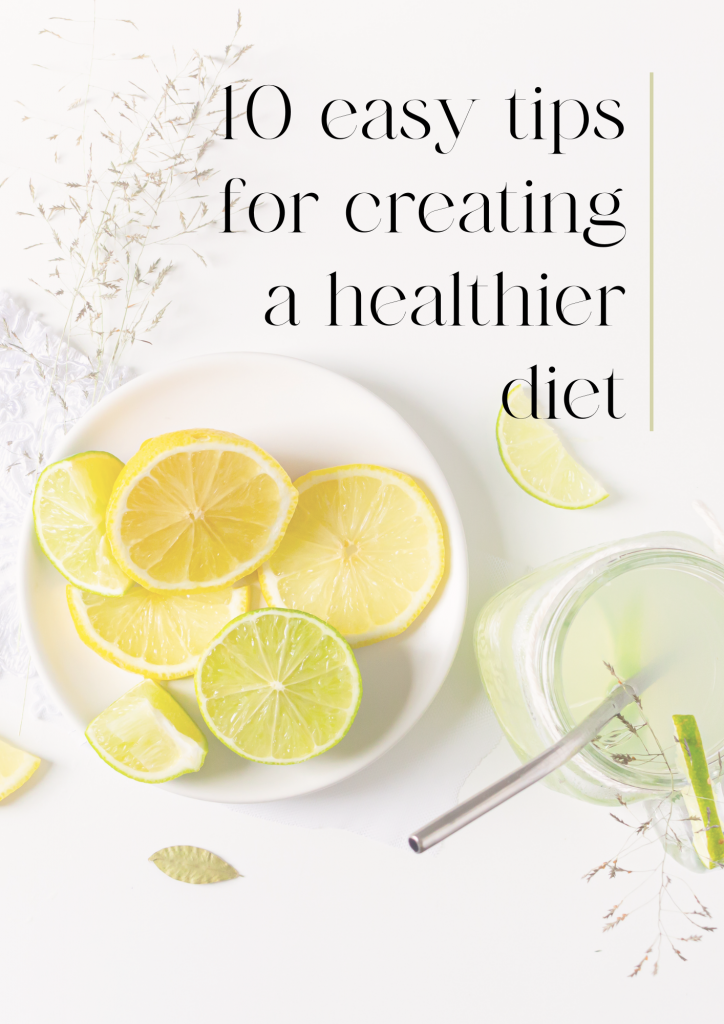
1. Increase your fruit and vegetable intake
The moment you decide that it’s time for your habits to change, the questions begin: Where should you start with creating a healthier diet?
Let’s start with the basics:
Food culture can be very confusing regarding what to eat and how your food should look delicious. Especially on the internet, you can find uncountable content about food that couldn’t look more delicious. And mostly, it seems that every food creator out there aims to create even more special dishes to impress their audience. And that’s fantastic!
Since the internet is not only a place to find advice but also to get inspiration, it’s beautiful to see when people try to make the dishes they share with the world look stunning.
But when it comes to reality and your everyday, perhaps hectic life, there seems to be no time to cook all this fancy food you can browse on the internet.
You don’t have to go crazy about food.
You can keep it as simple as possible. But in my opinion, and please correct me if I’m wrong, we have lost the meaning of real food as a society. Only if a dish looks fancy and mouth-watering, it’s considered “real”.
Fruits and vegetables are the most authentic food you can consume.
Let’s take this moment to remind ourselves that fruits and vegetables are the most authentic food you can consume. Fruits and vegetables are the healthiest and most nourishing goodies you could ever treat your body with.
And the best part is that it can be casual with fruits and vegetables! It does not have to look extra special. These foods are natural. They are provided by nature with the purpose to nourish your body.
Increasing your fruit and vegetable intake can take time and effort.
To increase your fruit and vegetable intake, you must first understand that fruits and vegetables can be a wholesome and complete meal. They come with everything your body requires to function correctly and to your pleasure.
You can quickly increase your fruit and vegetable intake by replacing one or two daily meals with only fruits and vegetables.
Please note that eating only one apple is not a whole meal.
Instead, eat as many fruits as you can to feel fully satisfied. Eat them preferably raw and on an empty stomach. This will ensure that you A. get all the micronutrients the fruits contain and B. You will be less likely to suffer from bloating since fruits have a lower digestion time than most other foods.
An extra tip is to sprinkle your plate of fruits with one teaspoon of organic nut butter. Healthy fats help your body digest fat-soluble vitamins like vitamins A, D, E, K.
Also, make sure to use tip no. 7 (chew your food) for every meal!
The same applies to eating vegetables:
You want to pick not only one type of vegetable but at least three different ones. An extra tip would be to choose your foods to be as colourful as possible.
Eating the rainbow of fruits and vegetables is an excellent start to creating a healthier diet!
Make sure to also include some organic, high-quality oil or fat in your dish of vegetables. Eating your vegetables as raw as possible will increase your micronutrient intake.
Please note the following:
I know very well that if you’ve never been a fruit or vegetable lover and avoided eating them your entire life, it’s challenging to get used to the taste of raw and unprocessed foods. It will take more practice to get used to the taste of natural foods since they don’t have any artificial flavour enhancers, added salt, extra sugar or anything to distort the taste of these foods.
An excellent tip for getting used to raw foods is to start with fruits, which taste naturally sweet. Also, if you eat fruits first in the morning on an empty stomach as your first meal, you can tolerate them better since you did not eat anything processed before that could make your tongue overstained.
2. Eat simple dishes
This next step on how to create a healthier diet is straightforward to follow.
Different food groups, like,
- Fruits
- Vegetables
- Legumes/beans
- Grains and other starchy carbohydrates
- Dairy products
- Protein foods like meat, fish, eggs
- Fats and oils
take individual time to digest when consumed.
For instance, fruits are straightforward to digest and leave your digestive system after approximately 30 minutes. Then, we have grains that take a few hours to be stomached. Meat would take several hours to be fully digested. If you combine food groups with different digestive times, you can cause problems for your digestive system. Issues could be,
- bloating,
- flatulence,
- constipation, or
- diarrhoea.
For instance:
A lasagne that contains all different kinds of food groups, like meat, dairy products, vegetables, grains, spices, etc., does not seem like a problem in the first place. Still, for your body, such a meal means arduous work to digest all ingredients properly.
Have you ever felt tired and heavy after you´ve eaten a big meal like lasagne? And maybe you also recognised that your digestion went wild after such a meal?
This could be because your body needs to work extra hard to digest your food.
If you want to support your body to feel more balanced when it comes to your digestion and if you want your body to have an easier time after a meal so that you are more likely to be energetic and vital, you should try this tip.
To follow this tip, keep food groups as separate as possible. This will automatically create more straightforward dishes. For instance,
- eat your fruits or vegetables separately.
- Don’t mix animal products with food groups that are digested in a shorter time, like fruits or vegetables.
- Try to eat grains separately from other food groups.
- Separate raw and cooked foods since both have individual digestive times.
But always keep in mind: how you feel is most important! If you love lasagne and think about skipping such meals, don’t do it if it breaks your heart. For instance, you could continue to eat it only on special occasions instead of avoiding it entirely and start your healthier diet by trying to eat at least a straightforward meal daily.
Avoid processed and ultra-processed foods.
When talking about eating more straightforward dishes, this excludes, of course, fast food and foods that are processed or even ultra-processed. Nothing about them is considered ‘simple’. They often contain many ingredients, usually accompanied by artificial additives and other substances that strain your body.
If you aim for more straightforward dishes, you’ll want to focus on foods with few or no ingredients. This way, you guarantee that you support and relieve your body while doing its job.
But again, if you like to eat processed foods, there is nothing to be ashamed of. I wrote this guide for you to have something on hand if you need some guidance regarding nutrition and a healthier diet. You, of course, can continue eating fast food and other processed foods; concurrently, you could think about doing it more consciously.
Never follow guides online mindlessly.
It does not make sense to mindlessly follow guides online that tell you to avoid processed foods if you don’t understand the reason behind them. Are processed foods harmful to your body? Probably. Do these foods strain on the body? Yes, they do. Do fast food and processed foods contain less micronutrients and are less nourishing? Yes, they do. Does this make them our enemies? No, it doesn’t.
Any food you can consume is by itself neutral. All different kinds of foods have their pros and cons when consuming them. It always depends on the individual situation. You cannot tell just by looking at a specific food if it’s good or bad; there is something positive and negative in everything, and this guide should only make you aware of a few basic things regarding a healthier diet.
Your health matters.
Let’s be honest: if you put yourself under stress by avoiding your favourite foods because you think you failed and put your body in danger, the stress you create can also be very counterproductive to your health. You must never forget your unique situation and are entitled to make the best decisions for your life.
Therefore, it would make more sense to eat fast food and processed foods more consciously for specific occasions and if you do, then without guilt or shame. There is nothing wrong or to be ashamed of if you, from time to time, thoroughly enjoy a dish that is not as nutritious as it could be.
3. Decrease your salt intake
By eating less processed foods and more fresh whole foods, you automatically will cut a good amount of salt off your diet.
Why is focusing on consuming less salt so important?
According to WHO, most people consume too much salt daily (on average, 9-12 grams per day), which can cause higher blood pressure and a higher risk of heart disease.
Therefore, reduced salt consumption (less than 5 grams per day is considered ideal) can help decrease the risk of high blood pressure and heart disease.
But why do we consume so much salt?
When you consume processed and highly processed foods, such as fast food or canned foods, most contain high amounts of salt without you realising it. Also, snacks are very likely to have unnecessary amounts of salt.
When consuming highly processed foods, you can quickly lose control over how much salt you put into your body because you do not necessarily taste the saltiness of these foods.
This does not mean that you should be afraid of salt, and you should not avoid any processed foods the next time you get your groceries if you would love to buy them. Again, your mental health matters!
Decrease your salt intake by consuming more real and raw whole foods.
It’s way easier to decrease your salt intake by consuming more real and raw whole foods like fruits, vegetables, nuts and seeds. They all have a decent amount of salt that happens through the natural growing process of the plants.
Your body needs salt to function correctly, so don’t skip it entirely off your diet. Only if it’s too much for an extended period can it get problematic and can lead to health issues. Balance is vital for every part of your life, especially when creating a healthier diet.
By consciously consuming more whole foods, you will automatically decrease your salt intake; this way, the next time you eat something with added salt, you can do it guilt-free. It’s a win-win situation!
4. Include whole grains
Whole grains come with lots of benefits for our health compared to refined grains, such as higher levels of vitamins and minerals, as well as more elevated amounts of fibre.
Why does refined grain exist if whole grains are more beneficial for our health?
Refined grains have a few pros, and whole grains cannot keep up with the following:
- It’s easier to chew and digest for our bodies.
- It has a longer shelf life than whole grains.
- Flour from refined grains makes fluffy and airy bread and pastries.
All of this sounds very beneficial and practical in the first place, but with the mentioned pros come big cons:
- If the body can digest the refined grain quicker than possible with whole grains, it gets faster and higher amounts of glucose, which causes high glucose spikes. This raises blood sugar fast, and high blood sugar is linked to many diseases.
- If refined grains have a longer shelf life, this also means that the few micronutrients that were left from the process get lost over the time of storage. This is because usually, the grain is protected by its bran, but this is the part that is removed during the process of refined grain. But none of them were meant to be stored for weeks or months. The longer a food is stored and exposed to sunlight, warmth and oxygen, the more it loses its micronutrients – it becomes less valuable for your body.
- If the refined grain makes your bread and pastries fluffy and airy, this looks appealing and delicious, but what you eat is what it looks like – air. There are no micronutrients your body could work with, only energy.
Fibre is healthy for your body.
The mentioned fibre that comes naturally with whole grains makes the grains harder to chew and digest and comes with many health benefits for your body:
- The fibre slows the breakdown from starch into glucose – it causes a steady blood sugar since your body can access the glucose in a much slower amount of time and only little by little.
- Fibre can help you improve your digestion since fibre tends to swell in your gut, and this way, the fibre can help you get rid of waste stored in your digestive system over time. Also, your digestive system has a much harder time digesting the fibre, but this way, your gut gets “trained” – this makes it more robust and, in the long term, healthier.
You can create a healthier diet by including whole grains in your eating habits.
5. Stay hydrated!
Hydration is significant for improving your health. Often, we hear that staying hydrated is very important, but too often, we need to listen to the why.
Why is hydration crucial?
Staying hydrated is not only beneficial for healthy skin and for your overall appearance. It assumes many vital duties in your body, such as:
- Helping your cells detoxify from toxins and metabolic products.
- Keep your blood liquid to transport nutrients and oxygen to all your cells.
- Keeping a normal temperature
- Helping you with healthy digestion – water can support the fibre you consume to swell and prevent constipation.
- Getting rid of wastes through urination and keeping your bladder healthy.
Dehydration is linked with many diseases, such as:
- High blood pressure
- Obesity
- Fatigue
- Kidney stones and even kidney failure
Now that you know why it’s vital to focus on staying hydrated, how can you do that?
Staying hydrated is simple as soon as you are used to consuming enough fluids. You can get water in two ways, either through drinking water or through consuming foods that contain high amounts of water; a few examples of liquid foods are:
- Cucumber
- Salad
- Tomatoes
- Zucchini
- Watermelon and other melons
- Strawberries
- Peaches
The more you eat foods that contain high amounts of liquid, the less you need to drink water to stay hydrated. The general rule for drinking enough water is 30ml per 1kg body weight. Due to this rule, a person who weighs 60kg needs to have a water intake of 1.8 litre per day.
This is a general rule, and your daily water intake could be higher or lower, depending on your lifestyle and body.
We’ve already discussed the why and how, but if you decide to drink liquids to keep your body hydrated,
What fluids should you consume when increasing your water intake?
Drink plain water.
No juices, sparkling water, soft drinks, or other “drinks” that you can buy in the supermarket. Usually, these drinks contain too much sugar or artificial additives your body does not need. Even if they taste delicious, your body does not want them. Your body can work best with plain water or, even better, with the fluids that come with whole foods, as discussed above.
If you struggle with drinking plain water, add fresh and organic lemon juice to your water or make herbal teas that you let cool down before you consume them. Another great tip is to add fruits to your water, like blueberries; if you let them soak in the water for one hour, they will transfer their colour and flavour to the water to make it more diverse.
6. Eat when you´re hungry
Many of us were raised with the idea that we must eat at certain times. This idea strengthened even more when the media introduced it and developed its products. Things like “breakfast cereals” reinforced the notion that breakfast, lunch and dinner are crucial for a proper eating pattern to stay healthy.
Eating regularly is vital.
And, of course, eating regularly is vital for our bodies to function correctly and stay energised throughout the day. If you nourish your body with too little food to support your health, you will quickly have to face the consequences of abnormally low blood pressure and heart rate, as well as the long-term symptoms of malnutrition.
Our bodies are beautiful creations that do miraculous things as soon as you let them do their magic. One of these things is that your body communicates with you if you’re willing to listen to it. It will tell you exactly when it’s hungry and, more surprisingly, what food your body needs at a specific time to be fully satisfied.
You can experience cravings occasionally.
Therefore, you sometimes have cravings for certain foods. Usually, the reason for these cravings is that your body lacks something these specific foods contain in abundance. Sometimes, it could be energy, but your body craves micronutrients more often. The foods you’re craving may contain micronutrients your body needs to function correctly.
But the opposite is also very typical. Sometimes, you don’t feel any appetite and don’t even think about food, even if it is ‘time’ for a big meal.
Trust your body; it knows best.
You don’t have to eat at certain times of the day, and you do not have to eat when you do not feel hungry. Sometimes, it’s even harmful if you eat while not feeling hungry. Digestion takes much energy off your body, and during digestion, your body has less power for other tasks like reparation of your cells or detoxifying.
Therefore, it’s pretty standard to not feel hungry at specific times of the day. Your body could be busy with something more critical than digestion. Also, one other reason for not feeling hungry is that your body is still satisfied with the last meal you ate.
Always listen to your body. It will tell you what it needs and when it needs it. Listen to your body carefully and enjoy your special bond with your body.
7. Chew your food
Where does digestion start?
If your answer is “in the stomach, of course!” then think again. Digestion starts the moment the food enters your body. Therefore, the first station of digestion is your mouth!
Digestion starts in your mouth.
As soon as food enters your mouth, digestion starts by chewing the food. Therefore, your body was created with the perfect tools to start with the digestion process – teeth, tongue, and saliva.
Chewing food properly helps break down the food’s surface, making it easier for the later absorption of nutrients. Also, your mouth produces saliva flow, which helps make the food more liquid. This helps swallow the food, and the enzymes in the saliva flow, which are natural components, help break down the starches in the consumed carbohydrates.
All of this supports healthy digestion. You can actively make your part if you want to improve your digestion.
Chew your food precisely.
The general rule for chewing your food is to chew 30 times per bite. I know this sounds wild, and keeping one taste of food for 30 chews in your mouth can be challenging if you’ve never focused on chewing correctly.
To follow this tip, remember to chew it a few times more intentionally every time you want to swallow one bite of food.
To improve your overall health and to support healthy digestion, you should give it a try.
And you will see, after a few days, it will start feeling less awkward chewing your food intentionally and adequately.
This is one major tip for creating a healthier diet.
8. Avoid overeating
Overeating means a lot of stress for your body. Eating until you finish your meal, even if you don’t feel hungry anymore, makes you feel sick, bloated and unwell. Your body must mobilise a massive amount of energy to digest more food than it needs, and this way, you put your body into an unnecessarily stressful situation.
Tip 7 (chew your food) can help with this issue massively. When you focus on intentional chewing, chances are way higher that you do not miss the moment when your body is satisfied and nourished enough.
Missing when you’re full can happen for several reasons:
- You’re distracted (by TV, cell phone, etc.)
- You’re eating too fast.
- You’re eating for pleasure instead of hunger.
- You’re eating to cope with certain emotions.
Overeating can happen.
If you overeat yourself, remind yourself that it’s okay and there is no need to punish yourself. It can happen. But now you know how to stop or control overeating behaviour.
- Don’t let yourself be distracted by TV or phone. Find a quiet and calm place where you can eat your food peacefully.
- Chew your food intentionally. If you struggle in the beginning with chewing your food correctly, count to 30 before you swallow the bite.
- Avoid highly processed foods. Eating for pleasure is more likely if you eat sugary or savoury food, as highly processed food tends to be. The more whole foods you consume, the calmer you get and the less likely you will eat for pleasure instead of hunger.
- Avoid eating when you’re emotional. Instead, find better ways to cope with emotions. You could get active and move your body whenever you feel the urge to eat to feel better.
Getting control back over overeating is a process and requires training. Be gentle with yourself and give yourself time. The more you train yourself and resist letting go of control over your eating behaviour, the more you regain control over your health and can create a healthier diet.
9. Avoid skipping meals
As discussed earlier, to stay healthy, you must nourish your body regularly with healthy, wholesome foods that provide lots of nutrients to feel satisfied and energised.
Now, you may skip meals between the days, especially on busy days. This could be a bad idea because skipping meals when you feel hungry can cause cravings, which can cause overeating and eating highly processed foods since they are more likely to contain higher amounts of sugar, ergo energy.
If you skip meals, you cause your body to get more likely in survival mode. And in survival mode, your body is longing for energy.
Focus on your relationship with your body and nourish it whenever it communicates with you. If it were your best friend, who is hungry and starving, you would never let her wait hours until you get her something to eat, right?
Treat your body like it’s your best friend because this is precisely what your body is. You spend all your days, weeks, months and years with it, and it accompanies you at all times. You better treat it as if it’s your best friend.
Doing so can create a healthier diet and ultimately create a healthier lifestyle.
10. Balance is key
Now, we’ve talked a lot about what you can do to improve your health and ways you can create a healthier diet. Here is one thing you should never do when creating a healthier diet:
Please do not overdo it!
Your nutrition and creating a healthier diet should be a fun journey, not a burden or a challenge. Of course, changes can be challenging since they are unknown and new experiences, and you need to change your loved and well-known habits to make a difference.
But these changes should be a fun experience and nothing you must force yourself to and nothing you must overcome every time you train these changes.
When it comes to diet, balance is vital.
It makes no sense to force yourself to adopt new habits and routines if they make you feel anxious and stressed.
Be gentle and kind with yourself. That is the golden rule here. This guide should help you to feel better in your body and to improve your relationship with it. But never should any of the above tips make you feel stressed out or like a failure. Never.
Therefore, here is your reminder that you should only adapt to what makes you feel great. You can try out any of the above tips, but not all tips and tricks sometimes suit any life. Your journey is unique; your daily habits should mirror your extraordinary life.
Let me encourage you never to follow mindlessly everything you hear and see online.
Sometimes, well-meaning tips and tricks can cause more problems than they can cure.
So, never overdo it and always focus on balance in your life. It’s all up to you. You can try the above tips for creating a healthier diet one day in your week. Or you can adapt all of the above information, or none, for one day a week or seven.
Balance is key.
No perfect routine or habit is worth it if you lose your happiness over it.
Discussing eating and exceptionally healthy eating patterns is always a delicate endeavour. Nutrition and food, in general, couldn’t be a more personal topic, and it’s easy to get very confused with all the good or not-so-good advice on the internet and elsewhere.
The thing with healthy food is this: you can only make it 100% perfect sometimes. There will always be someone with an even more controversial point of view regarding what is healthy and what is unhealthy.
How you feel, your mental health and how you feel in your body is the real point of healthy food, and what tips and tricks you should adapt to your life. Yes, you read it correctly. It’s not about all these experts who wish you to perfect your nutrition, and it’s not about all the advice you get in good faith.
How you feel is the only matter you should consider regarding healthy eating. If your eating habits make you happy and content, stick with them! Having a solid and healthy relationship with food is very, very important.
What should you do if you’re unsure if you are feeling pleased and healthy with your current eating pattern?
Well, if you’re unsure if you feel good about what food you consume, chances are high that you don’t feel content with nutrition. In this case, you try out something new.
Don’t overdo it!
Nothing is worse than adding too many new habits to your existing routine. With this approach, you will likely quit everything before the day has ended. Don’t do that!
Instead, pick one of the above tips for eating and creating a healthier diet and stick with it until you either feel better or are sure this specific tip does not support you on your healthy eating journey. You know, this can happen as well. You are unique; therefore, advice that works well for me does not always benefit any of you.
If that happens, always remember that it’s okay if something does not work out for you. It’s okay, and everything is alright with you. Don’t overthink it. Just jump to the next tip.
And with any tip you want to follow, remember that balance is vital. It’s okay if, even if one recommendation benefits you, you don’t have to always stick to it. Life happens, and sometimes, we must prioritise our mental health over being consistent with our habits. That’s balance, and balance is what you should strive for.
Finally, always remember that you’re doing fine. You’re enough, and you’re eating habits do not define your worth. Even if you’re unhappy with how you consume food daily, it has nothing to do with your value as a human being and a soul. Your value and worth are infinite and never part of any criticism.
Always be gentle and kind to yourself. You deserve it.
Until next time,
Keep evolving into your most glorious self!


